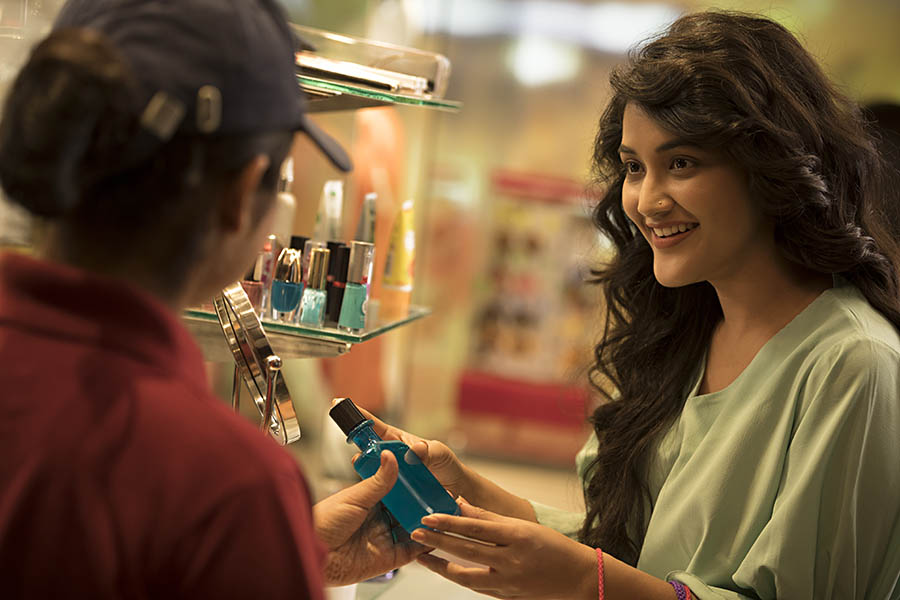HOW IT WORKS
Perfume Stores

- Shops specializing in selling fragrances, perfumes, and related products.
Perfume stores are retail establishments that specialize in selling a wide variety of fragrances, including perfumes, colognes, and body sprays. These stores cater to individuals looking to enhance their personal style and make a statement through their scent.
Key characteristics of perfume stores include a diverse selection of designer and niche fragrances, knowledgeable staff who can assist customers in finding their perfect scent, and a focus on creating a sensory experience for shoppers. The target audience for perfume stores is typically individuals who value personal grooming and self-expression, as well as gift-givers looking for a special present.
Common products and services offered by perfume stores include perfume testers for customers to sample scents before purchasing, gift-wrapping services, and loyalty programs to encourage repeat business. Business models for perfume stores can range from independent boutique shops to larger chain stores with a wider reach.
Notable trends and innovations within the industry include the rise of personalized fragrances, eco-friendly and sustainable perfume options, and the integration of technology such as scent-matching algorithms to help customers find their ideal fragrance.
The unique value proposition of perfume stores lies in their ability to offer a wide range of scents that cater to individual preferences and personalities, as well as the expertise of their staff in guiding customers towards their perfect fragrance match. However, challenges in the industry may include competition from online retailers, fluctuating consumer preferences, and the need to stay relevant in a crowded market.
Overall, perfume stores play a crucial role in the beauty and personal care industry by providing customers with a means of expressing themselves through the power of scent. Their ability to offer a diverse selection of fragrances, personalized service, and an engaging shopping experience sets them apart in the market landscape.
Initial Stage: A perfume store begins by identifying market opportunities and consumer needs in the fragrance industry. This involves conducting market research to understand trends, preferences, and demands among target audiences.
Product Formulation: Based on the market insights gathered, the perfume store formulates its products to meet these demands. This may involve creating unique fragrance blends, sourcing high-quality ingredients, and focusing on value propositions such as long-lasting scents or eco-friendly options.
Marketing and Promotion: The store employs marketing and promotional strategies to reach target audiences and generate interest in its products. This could include social media campaigns, collaborations with influencers or beauty bloggers, and in-store events to engage customers.
Sales and Distribution: Perfume stores utilize various sales and distribution channels, such as online platforms, physical retail locations, and partnerships with beauty retailers. Customer interactions at these touchpoints are crucial for providing personalized recommendations and enhancing the shopping experience.
Post-sale Services: To ensure customer satisfaction and loyalty, the perfume store offers post-sale services such as fragrance consultations, sample packs, and returns or exchanges policies. This helps in building trust with customers and encouraging repeat purchases.
Continuous Improvement: The store continuously adapts and improves its products and services based on market feedback. This could involve launching new fragrance collections, refining packaging designs, or expanding into new market segments. By staying agile and responsive to changing consumer preferences, the perfume store can maintain its competitive edge in the industry.
In the realm of perfume stores, daily operations face challenges in resource management (such as inventory and supply chain), communication & collaboration (between sales staff and customers), process inefficiency (such as long checkout lines), inventory management (tracking and restocking popular items), quality control (ensuring authentic products), technology integration (utilizing POS systems effectively), data management (customer preferences and purchasing patterns), and risk management (protecting against theft or counterfeit products). These hurdles impact sales, customer satisfaction, and overall business efficiency. Potential solutions include implementing inventory management software, training staff on customer service best practices, streamlining checkout processes, conducting regular quality checks, utilizing CRM systems for customer data, and implementing security measures to mitigate risks. By addressing these challenges proactively, perfume stores can enhance their operations and drive success in a competitive market.
-
Webspad revolutionized our online operations by providing user-friendly tools that streamlined our processes. They addressed our inventory management challenges with their innovative solutions, allowing us to track and restock popular items efficiently. This resulted in improved sales and customer satisfaction, making our business more competitive in the market. We are grateful for the dedicated tech expert support that Webspad offers, truly empowering us to achieve our business goals.
Perfume Stores Merchant Tweet / X

